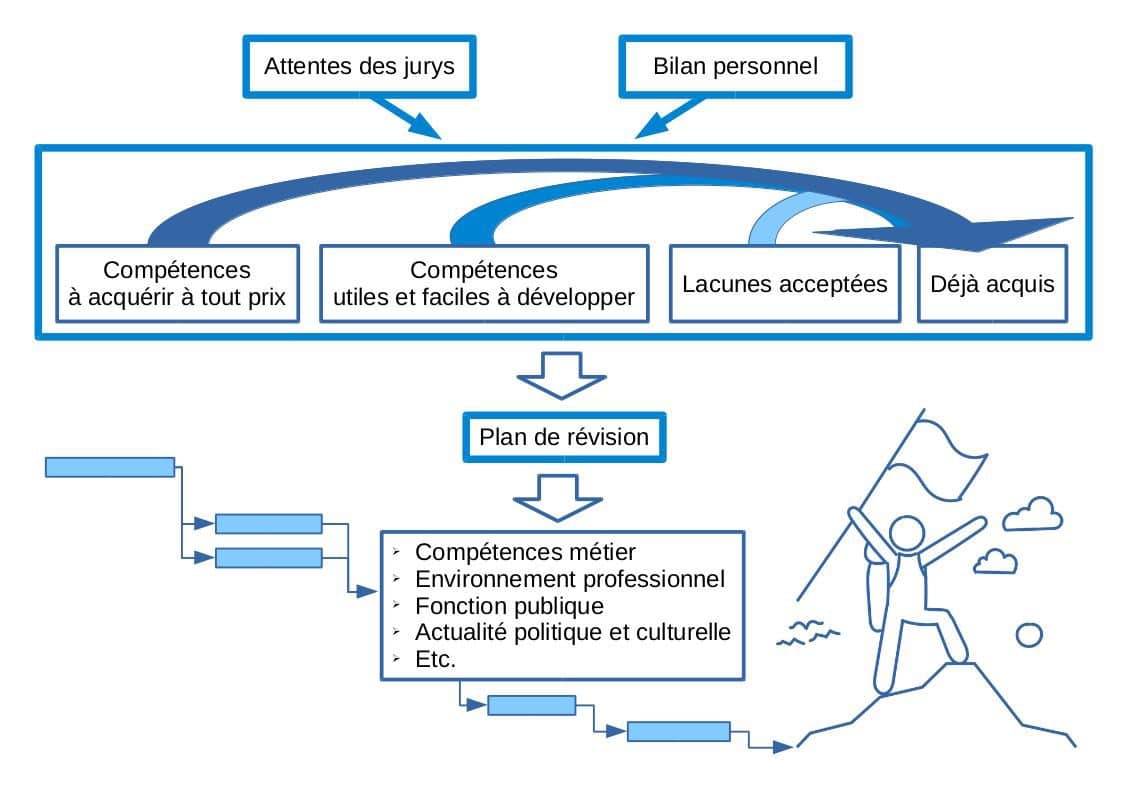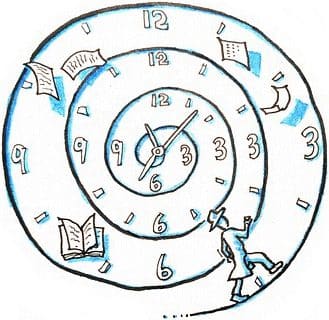The Holy Grail of the civil service, success in competitive examinations is often attributed to diligent revision or luck. Focused on the syllabus and methodology, preparation often overlooks strategy, which is essential if you're short of time. Jessica Boutault, winner of the State and Territorial Curator of Libraries competitions, takes a closer look.

Should you immerse yourself body and soul in revisions and mock exams, or define a strategy to make the most of the time available? The second option is the only one open to those who have already embarked on a career.
Preparing for competitive entrance examinations: a strategy based on a sound assessment of the current situation
Successful preparation always starts with taking stock. Understanding what the jury expects is essential. This will give you the keys to the tests and help you identify which strings to add to your bow.
Rely on the expectations of the juries
First of all, let's correct a prevailing misconception: a competitive examination is not an academic exercise detached from professional realities. It is a recruitment interview. Its purpose is to select candidates whose skills and motivations will enrich the civil service and with whom working on a daily basis will prove easy and fruitful.
But, in concrete terms, what are the tests trying to test?
The institutions that organise competitions sometimes provide very clear answers. For example, the Centre national de la fonction publique territoriale (CNFPT) (National Centre for the Territorial Civil Service) states the following on the subject of the territorial administrator competition :
"Written tests: these are designed to guarantee a basic knowledge of the fundamental subjects (public law, economics, public finance, local authority law and management)".
On the organisers' websites, you'll find descriptions of the tests and the programme, jury reports from previous sessions and sometimes a few good papers. Pay close attention! And bear in mind that the instructions given for one competition do not necessarily apply to others - even for the same body or job category in two different civil services. This is the case, for example, for the State and territorial library curator competitions that I took.
Leverage your strengths, fill your gaps
Once you have identified the juries' expectations, assess your ability to meet them.
Examine yourself without concession or false modesty. Point out, as a priority, the skills and knowledge that you lack and without which you cannot succeed. Next, identify the areas where you can make useful progress: areas where improvement is easy and offers good added value. Finally, summarise the weaknesses that you feel will not automatically lead to failure, but also your strengths: this good starting point will give you confidence.
You will have defined four categories, to be dealt with in order of priority:
- the essentials ;
- the useful ;
- acceptable gaps;
- acquired.
Preparing well for civil service entrance examinations: the winning strategy

Preparing for competitive entrance exams: a tailor-made action plan
Now draw up a revision plan based on your personal situation and profile.
Manage your time

First, find out how much time you have until the first tests. Then estimate how much time you can realistically devote to your preparation, ensuring that you have enough rest. Set yourself milestones, dates on which you will leave one subject for another, whether or not you think you have mastered it. This will help you avoid deadlocks.
CC-BY Cdd20
Train to master the techniques
Work on test methodology using documentation found online or in bookshops, jury reports and, if possible, good papers. Don't allow yourself to be locked into a method that is presented as unique and ideal, but identify the one that suits you best.
For example, when writing a summary or a report, you can highlight or annotate texts as you read them or, conversely, organise your notes directly. The first method is slower, because you then have to pick out and sort the information, but it allows you to develop your analysis, and therefore your plan. The second method commits you to a plan from the outset, saving you a considerable amount of time, but with the risk of discovering too late that you've gone the wrong way.
Whatever is recommended to you, the best method is the one you use most successfully. That's why experimenting is just as essential as taking mock exams.
By practising, you can also check that you know how to keep to the deadlines. An unfinished paper is synonymous with failure. And a lack of conclusion will always result in a lower mark, even when the test description allows for this possibility, because it suggests that you have run out of time.
Enhance your knowledge, know-how and interpersonal skills
The institution organising the competition publishes the study programme and sometimes useful resources. Professional skills (especially in-house), a sound knowledge of your future professional environment, the civil service and current political and cultural events are always part of the requirements. Understanding what the A, B and C categories correspond to will help you identify the level of expertise expected. Your motivation and attitude as a civil servant will also be assessed.
If you want to prepare for the long haul without running out of steam, make sure you have plenty of background information. Choose podcasts on France Culture or TED conferences to accompany your household chores, read historical novels and essays, visit museums, go to the cinema, the theatre or a concert... You'll keep your motivation up and memorise better by combining work and pleasure.
In short, success in competitive examinations is the result of a match between a recruitment need and a well-matched profile. Compare your strengths and weaknesses with the panel's expectations and adapt accordingly. Your realistic and effective training plan will enable you to develop your skills. Follow it rigorously, but without exhausting yourself, to excel on the day of the tests.


